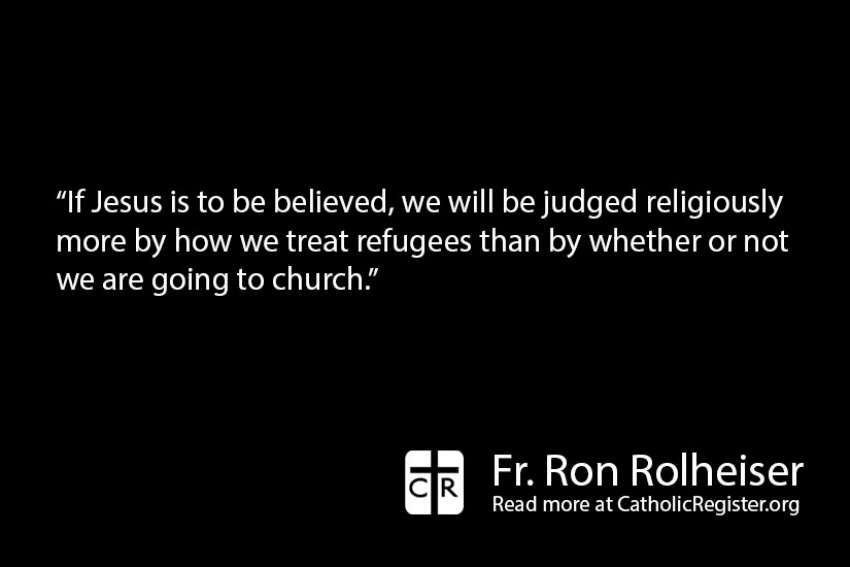This feeling of abandonment and loneliness can be especially acute in times of real distress — perhaps when one’s life has come unraveled or tragedy has paid a dreaded visit. The people of Israel often felt like this when they were in Babylonian exile in the sixth century B.C.
It seemed that God had abandoned them and that they were forgotten. Isaiah’s message was meant for comfort and encouragement then, and it has continued for centuries to console those who hurt and mourn.
Isaiah used a maternal image for God (and it is not the only place in Scripture!) to illustrate God’s care for Israel. God asked the rhetorical question, “Can a woman forget her nursing child or show no compassion for the child of her womb?” Our expected answer would be, “Of course not!”
But tugging at the back of our consciousness is the disturbing realization that sometimes this does happen. God anticipated this: “Even if they do, I never will!” Unlike humans, God is consistent, faithful and filled with unceasing compassion and care for all creation. God has our back; we can depend on God.
It is important to keep this in our hearts and minds in times that test our souls. God can seem absent from so much of the world’s chaos and fear, and we can have nagging doubts whether we and the world matter at all to God. We will never be forgotten or abandoned.
God’s presence will not be manifested in great glory or fanfare. The psalm reveals how God will come to us: in silence. Silence means that we must still ourselves inwardly, calming our anxieties, worries and countless questions. Silence is difficult, especially in our noisy and stimulus-driven culture. But when we wait in silence, which is far more than the mere absence of noise or sound, we will become conscious of God’s compassionate care and presence.
People love to judge — they judge others and judge themselves, usually harshly. Paul had another approach: don’t judge anyone, especially yourself. God alone has the right to judge and when we take over that role, in a sense we have pushed God aside.
Only God can judge correctly and justly. When we try our hand at it, we are often dead wrong for we do not have an adequate understanding of another person’s life.
Among the first Christians, one sin or failing stood out from all the others: having a divided heart. When we attempt to serve two masters — that is, devote our time and energy to two overriding concerns — they both suffer. A prime example is the amount of anxiety that people experience over life’s challenges: food, clothing, paying bills, career, work and so on.
These are certainly important things that we must attend to, but that is the point. Attend to them, but do not worry or obsess about them. If worry could fill our bank account, advance our career and provide for our needs, then by all means worry. But in fact, it can’t, and what’s more, worry is destructive and counter-productive. It can destroy our health, relationships and peace of mind, even preventing us from finding solutions to our problems.
Matthew used the images of the birds of the air and the lilies of the field to illustrate God’s provident and compassionate care for all creation, even the lowliest. If God cares so much for birds and lilies, how much more will God care and provide for us!
In some of the best counsel in the New Testament, Jesus urged His followers to deal just with the difficulties of the present day and not borrow trouble from tomorrow. The trouble we have today is all we can handle. Many of our fears of the future never materialize for they are products of our own imaginative fear.
Jesus insisted that the focus of our lives should be our relationship with God and walking in God’s ways. When we do that, we will be happier and more at peace, opening ourselves for God to work in us and on our behalf.
In this teaching, Jesus offered us the freedom of the spirit-filled children of God.

